Operating out of the UK, J-Supplied 3D offers complete 3D printing solutions for a variety of industries. Their 3D manufacturing facility offers multiple options to fit individual and customized projects, with 20 Craftbot 3D printers in use and the capability to print advanced thermoplastics and other materials.
As an industrial user, J-Supplied 3D says the Craftbot IDEX printer is the most productive for their team in order to achieve continuous printing. Although they maintain other 3D machines, the Craftbot is mainly used for FDM projects as the systems specialize in it.
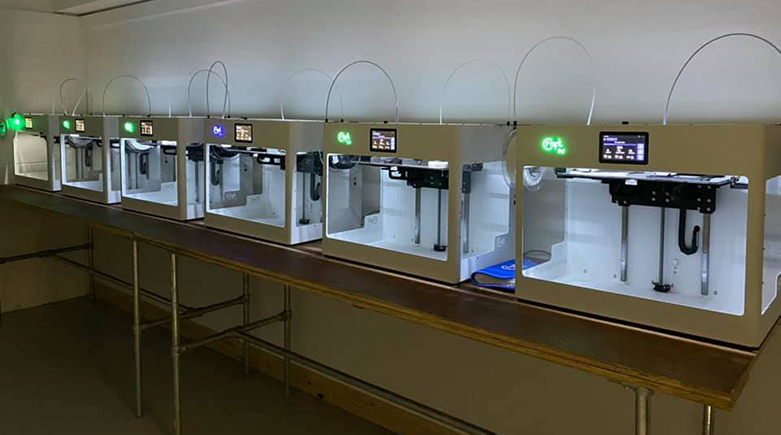
What sets J-Supplied 3D apart from other rapid manufacturing facilities is their commitment to the protection of people and the environment, thereby allowing them to become leaders in the category. On average, their project materials are made up of roughly 85% to 90% of recycled materials, such as plastic bottles and fishing wires.
This is important because sustainability and recycling are trending as the future focus in 3D printing. Why not have these industries work together to create more efficient and unique solutions?
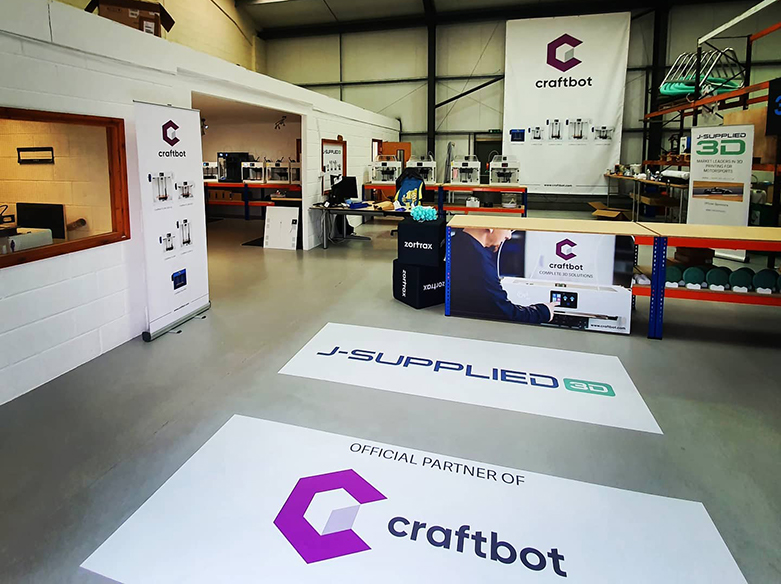
The need for sustainable solutions is growing more important.
According to the International Union for Conservation of Nature (IUCN), an estimated 300 million tons of plastic are produced annually, with at least 8 million tons of those plastic materials ending up in the ocean. Plastic pollution threatens food safety and quality, human health, and contributes to climate change. Which is why J-Supplied was excited when they were approached by the global sports company Adidas for a unique project.
Known as the largest European sportswear manufacturer, Adidas is continuously working towards becoming a more sustainable company. Adidas’ sustainability strategy identifies six strategic priorities to address the issues and challenges of the spaces where sport is made, sold, and played.
Adidas tasked J-Supplied with 3D printing an Adidas shoe that was made entirely from recycled plastics. Once the team received a model of the shoe Adidas wanted, J-Supplied produced a few samples using recycled white PETG. They were excited to celebrate that the shoes were 3D printed, so they produced 50 pairs using the Craftbot Flow printers and worked with a partner to create an in-store installation.
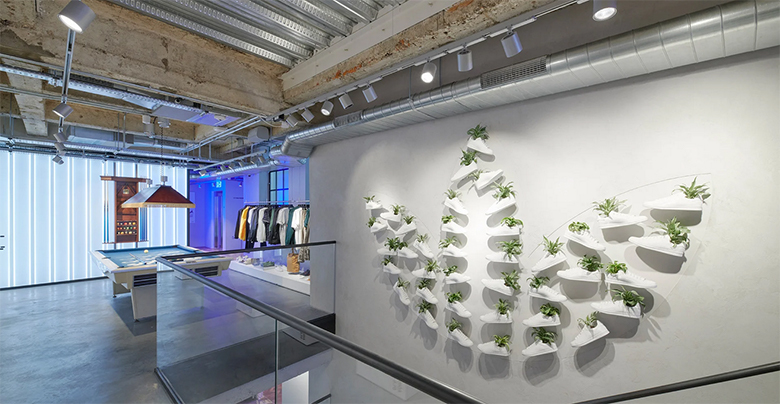
The purpose for the shoes were for a unique mural for their new flagship gender neutral eco-friendly store in London, which is filled with exclusive Adidas Originals products and reflects their vision for sustainability. A large trefoil mural, which contains living plants, is the highlight of the store and commemorates one of Adidas’ most iconic shoe designs, the Stan Smith, while showcasing the unity of sustainability and cutting-edge 3D printer technology.
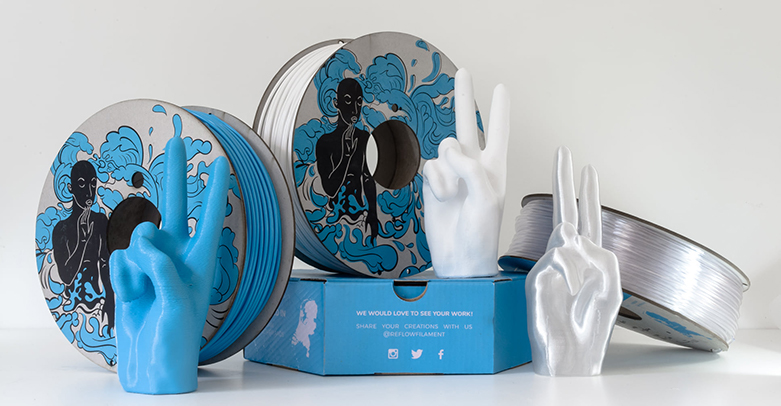
Creation of the 3D Printed Shoe
In order to properly produce the shoes for Adidas, J-Supplied required a system that can meet the speed and consistency needed to achieve their production goals, and the versatility to work with different filament materials. Using Craftbot’s award-winning and user-friendly 3D printers, they found everything that they were looking for and more. Craftbot offers the benefit of accurate repeatability from batches to batch. By printing their own models and final pieces in-house, J-Supplied saved considerable time and money compared with the traditional method of outsourcing injection moldings.
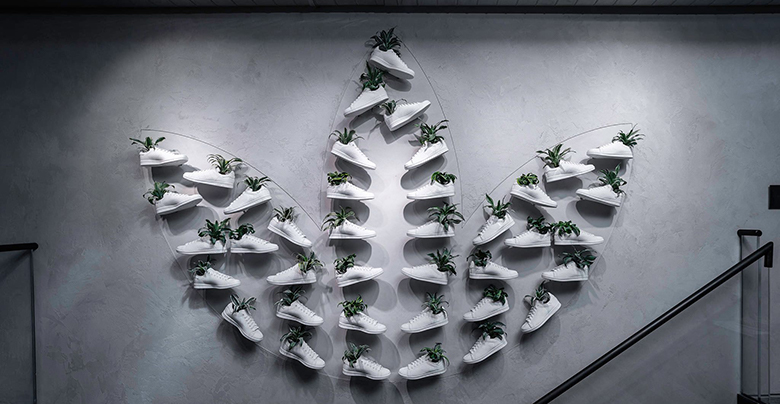
Following the mural unveiling and multiple consumer inquiries, J-Supplied is now looking to 3D print on-demand shoes in low batches to sell as exclusives. This allows Adidas to continue their sustainability mission to end plastic waste while offering innovative options.
Beyond this unique running shoe initiative, J-Supplied has expanded the idea of using recycled fishing nets to 3D produce home furnishings and buttons for use on garments and suits for global luxury fashion icons such as Prada.
License: The text of "Adidas in 3D Printing: Running Towards a Sustainable Movement" by All3DP is licensed under a Creative Commons Attribution 4.0 International License.